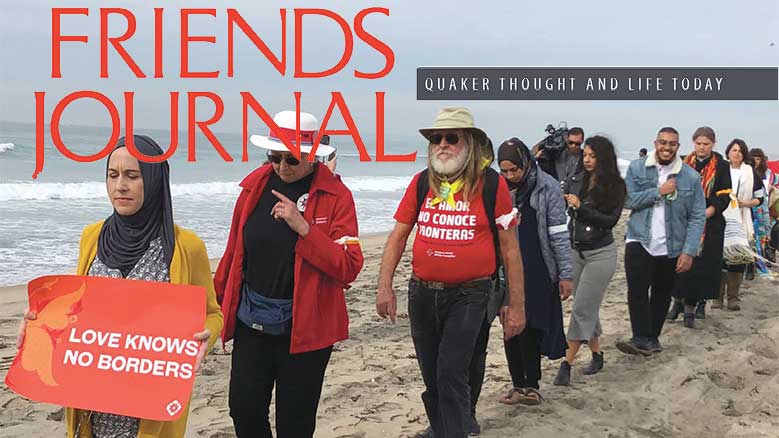Often, when I travel among Friends, individuals will come up to me and offer warm comments on the excellence of the Friends Journal. I always thank those kind folks, and then hasten to point out that the Journal is the work of many hands. It’s hard to convey in a few words how superb our staff and volunteers are, how excellent their skills, how collaborative our processes. Every member of our staff is highly skilled in the work that they perform for us, whether it be activities related to circulation, advertising sales, graphic design, copy-editing, fundraising, or administration.
There has been, perhaps, no one more involved in the day-to-day effort of reading and selecting manuscripts (through a collaborative process with me and other seasoned Quaker readers), of carefully editing those writings, and corresponding at length and with sensitivity with our hundreds of voluntary authors than Senior Editor Robert Dockhorn. Bob came to us as assistant editor in 1999 and stepped into the senior editor role in 2001, when Kenneth Sutton left us to move to Boston. I still smile at the memory of the staff discussion of our group interview of him for that position. Bob left the office, as all candidates for jobs here do following their interviews, and I turned to the staff and said, "What do you think?" One by one they began to gently smack the table with their hands and chanted in unison, "We want Bob, we want Bob!" We had never had such unity prior to this in a hiring discussion, nor since!
Bob Dockhorn has been a remarkable colleague for all of us for the past 12 years. In my experience with him, there has been no controversy among Friends, no piece of Quaker history with which he is unfamiliar or cannot quickly find just the right resource to get the needed answers. When we’ve been in the graphic design process of choosing images for the magazine, it’s amazed me how Bob seems to know a remarkably huge number of contemporary Friends in those images. Numerous decades of attending Quaker gatherings of all sorts has produced that. Recently, staff looked at piles of photographs of meetinghouse benches as we consulted together on the design for a book cover. Bob pointed out to us that one set of benches were of particular historical relevance. Though others of us in that conversation also have decades of experience in dealing with the same content, I think we all learned something new that day—just one more gem offered by our unassuming colleague, who holds a PhD in History, and has often put that training to good use on our behalf. Perhaps the place where Bob’s background as a university professor has been most evident is in his work with our interns, providing a truly remarkable learning experience for them not only in journalism, but also in exposing them to the Quaker value of honoring their ideas and contributions and giving them serious work to perform. If you read the intern testimonials on our website (https://www.friendsjournal.org/internships), it’s easy to read between the lines and see the great care, thoughtfulness, and attention Bob gave to over 90 young people during his time here.
Friend Dockhorn came to us at the end of his career, a seasoned and wise colleague, supervisor, mentor. I know he didn’t intend to stay with us so long. But he loved this work and put off retirement year after year because of the great pleasure he found in working with our authors, interns, and staff. He has been a valued and trusted colleague for me, and I write this column to celebrate his many, many contributions to the Journal, all made quietly, without expectation of public recognition. Bob retired at the end of June, handing over his files, notes, office, and interns to incoming Editor Martin Kelley. He is greatly missed—and already has written to let us know how much he enjoyed reading the most recent issue, one on which he did a lot of work, but was reading it afresh from a new vantage point.


